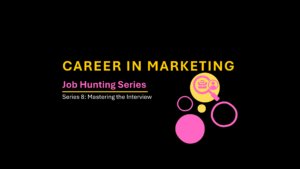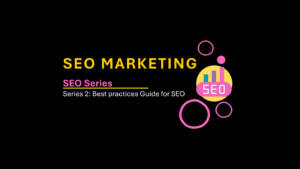Why Job Vocabulary Feels Like a Secret Code
If you’re a graduate, a final-year student, or an international job seeker, the UK job market can feel like it speaks a different language. Terms like graduate scheme, ATS, sponsorship threshold, and competitive salary pop up in job ads every day — but hardly anyone explains them.
Here’s the catch: not knowing these words isn’t just frustrating. It can actually cost you interviews and offers.
- Graduate schemes close earlier than most students realise.
- ATS (Applicant Tracking Systems) can reject your CV before a recruiter even sees it.
- Sponsorship rules mean international students risk applying for jobs that don’t qualify for visas.
As James Reed, author of Why You? 101 Interview Questions You’ll Never Fear Again, puts it:
“Employers are looking for evidence that you understand their world. If you don’t understand the language they use, you’ll never convince them you belong in it.”
This article is your OTINGA Job Market Glossary 2025 — a practical guide to every term you’ll face, with recruiter insights, stats, and examples.
Graduate Schemes vs Graduate Jobs
This is the first fork in the road for graduates.
Graduate Schemes:
- Structured training programmes (1–3 years).
- Run by large employers (Unilever, Barclays, Dentsu, PwC).
- Often rotational (different departments).
- Competitive: thousands of applicants.
- Long process: tests → video interview → assessment centre.
- Applications open September, close by December/January.
Graduate Jobs:
- Regular entry-level roles.
- Found in SMEs, startups, and agencies.
- Flexible start dates.
- Simpler process: CV → interview → offer.
- Hire year-round.
Example:
- Unilever Future Leaders Programme = graduate scheme.
- Marketing Assistant in a London SME = graduate job.
TargetJobs reports that graduate schemes receive over 30,000 applications annually across the UK, while SMEs account for 99% of private businesses and offer most of the graduate-level jobs (FSB, 2025).
As the UK Jobs Guide 2024 notes:
“Schemes are not the only route into professional life. Graduates in SMEs often gain responsibility faster than their peers in structured programmes.”
Internship, Placement & Work Experience
Not all “experience” is equal — but all of it counts.
- Internship: Short-term (weeks–months), usually summer. Paid (unless charity).
- Placement: 6–12 months, often a sandwich year in your degree.
- Work Experience: Volunteering, shadowing, freelancing, or society roles.

- Running your uni society’s TikTok? Work experience.
- Summer at a PR agency? Internship.
- A year in a digital agency via degree? Placement.
Arthur Lee, in Get Your First Job From an Employer’s Perspective, reminds us:
“Recruiters aren’t obsessed with the label. What matters is whether the candidate can explain what they achieved.”
Assessment Centres
The phrase that terrifies grads.
An assessment centre is a multi-stage day where employers test your skills. Expect:
- Group exercises.
- Case studies.
- Presentations.
- Behavioural interviews.
Dentsu, one of the UK’s largest marketing agencies, uses them at entry level. Their advice is clear:
“During group activities it’s not about being the loudest. We’re looking for candidates who contribute, listen, and bring others into the discussion.”
Common mistakes:
- Dominating the group.
- Staying silent.
- Overthinking.
Best practice:
- Invite quieter peers to contribute.
- Summarise ideas.
- Stay calm, professional, and collaborative.
Note: Virtual assessment centres (now common post-COVID) require extra care with tech, timing, and online communication.
ATS (Applicant Tracking Systems)
ATS = the gatekeeping robot.
Most large firms use an ATS to filter CVs. It scans for keywords from the job ad.
Example:
If the role says “SEO, PPC, Google Analytics,” the ATS looks for those exact words. If your CV only says “search engine optimisation,” you might be filtered out.
Christine Reidhead, in Get That Job! Ace Your Interview Every Time, warns:
“Too many candidates are screened out before a human ever sees their application — simply because their CV didn’t match the right words.”
Don’t use heavily designed CVs.
Use clean templates (TechTalk CV templates are ATS-friendly).
Action step: Copy the job ad into a tool like Jobscan to check your CV match.
Sponsorship & Salary Threshold
For international grads, these two terms are non-negotiable.
- Visa Sponsorship: Employer applies for your Skilled Worker visa. Only registered sponsors can do this.
- Salary Threshold: As of 2025, you need £38,900 minimum (or slightly less for shortage roles).
Phil Monroe, in My Interview Secrets, advises:
“International students need to be upfront about sponsorship early. It saves wasted effort for both sides.”
Example:
- Marketing Assistant at £28,000 =
no sponsorship.
- Digital Marketing Executive at £40,000 with sponsor licence =
sponsorship possible.
You can sign up and become a member with MiGreat to check which firms can sponsor.
Hybrid, Remote & Flexible Jobs
Post-COVID, flexibility is now standard.
- Hybrid: Part office, part remote (most common).
- Remote: Fully home-based (rare for entry-level).
- Flexible: Adjustable hours/location.
Justin Kerr, author of How to Be Great at Your Job, says:
“Flexibility is a privilege, not a given. The more junior you are, the more you’ll need to be visible.”
For international students, visas usually require workplace ties — so hybrid is fine, but fully remote can be tricky.
Hard Skills vs Soft Skills
Recruiters want both.
- Hard Skills: SEO, PPC, analytics, CRM, Adobe Suite.
- Soft Skills: Teamwork, adaptability, resilience, communication.
Arthur Lee highlights:
“Nine out of ten rejections come down to poor evidence of soft skills, not missing technical ones.”
Example: Instead of “Good communicator,” write:
“Presented campaign strategy to 50+ peers at university society AGM.”
Timing Matters: When to Apply
Timing separates those who get offers from those who miss out.
- Graduate Schemes: Open Sept, close Dec/Jan.
- SMEs & Agencies: Peak hiring Apr–Jul.
- Seasonal Marketing: Sept–Oct rush for retail & FMCG.
TargetJobs data (2025):
- Best window = Sept–Nov.
- Secondary spike = Apr–May.
HBR’s Guide to Job Search puts it well:
“Treat your job search like a campaign: success depends on timing, targeting, and consistency.”
Don’t wait until June after exams — by then, many schemes and agencies are full.
Common Mistakes in Job Ads
- Confusing scheme vs job.
- Ignoring “UK right to work required.”
- Overlooking “rolling applications.”
- Misunderstanding “competitive salary.”
Mark Murphy, in Never Say These Words in a Job Interview, notes:
“Misunderstanding employer language is the fastest way to look unprepared.”
Mini Glossary Table
Term | What It Means | Why It Matters |
Graduate Scheme | Structured training (1–3 yrs) | Competitive, early deadlines |
Graduate Job | Entry-level role | Flexible, year-round |
Internship | Short-term work | Builds portfolio |
Placement | 6–12 month industry year | Adds CV weight |
Assessment Centre | Selection day | Key for large employers |
ATS | CV-filtering software | Keywords matter |
Visa Sponsorship | Employer visa support | Essential for internationals |
Salary Threshold | £38,900 min | Visa eligibility |
Hybrid | Office + home | Default model 2025 |
Remote | 100% from home | Rare for grads |
Soft Skills | People abilities | Often decisive |
Hard Skills | Technical | Needed for marketing |
Conclusion
The UK job market is competitive — but with the right vocabulary, you’ll feel less like an outsider and more like an insider. Understanding terms like graduate scheme, ATS, sponsorship, and assessment centre isn’t about jargon — it’s about confidence, timing, and applying strategically.
Brian Tracy, in The Laws of Luck, reminds us:
“Success is often about stacking the odds in your favour. Knowing the language of opportunity is one way to do just that.”
Next in the series: What Role Fits You in Marketing? A Self-Reflection Guide for Graduates (2025 Edition)





Your blog has quickly become one of my favorites I always look forward to your new posts and the insights they offer
We just wanted to take a moment to acknowledge all the hard work and effort you’ve been putting in lately. Keep up the amazing job, you’re doing great!
Your writing is so engaging and easy to read It makes it a pleasure to visit your blog and learn from your insights and experiences
This blog is not just about the content, but also the community it fosters I’ve connected with so many like-minded individuals here
I love how this blog promotes self-love and confidence It’s important to appreciate ourselves and your blog reminds me of that
Thank you for the amazing blog post!
I love how this blog gives a voice to important social and political issues It’s important to use your platform for good, and you do that flawlessly
Keep up the fantastic work and continue to inspire us all!
Thank you for providing a positive and constructive space for discussion It’s refreshing to see a blog with a kind and respectful community
What topics would you like to see covered in future posts? Let us know in the comments.